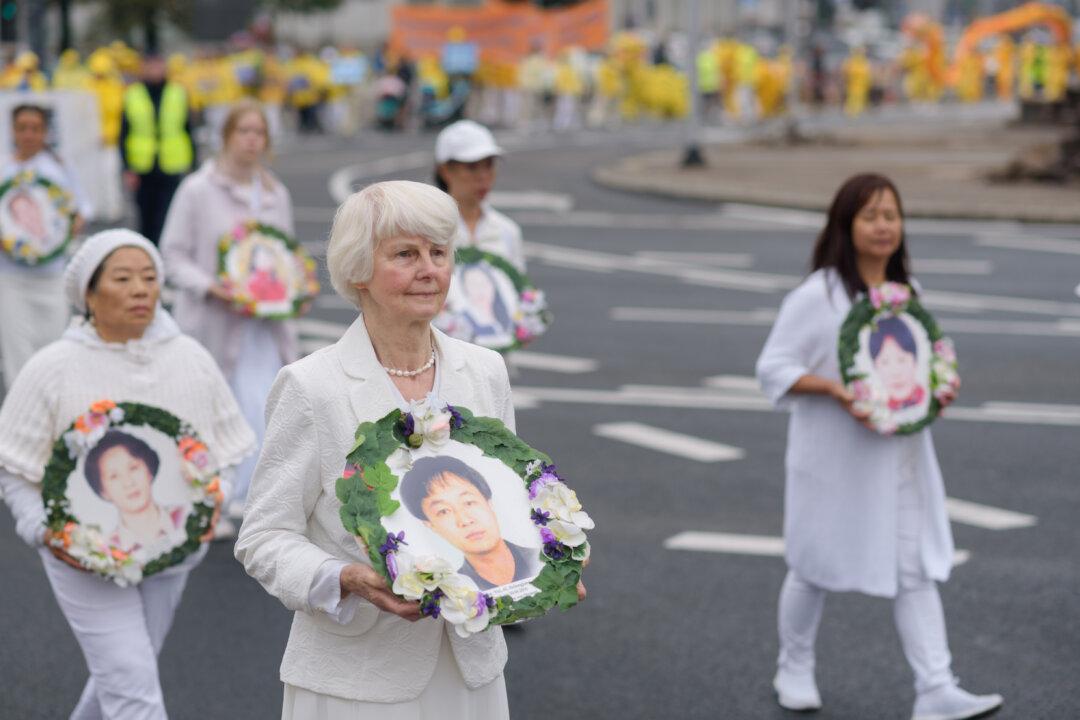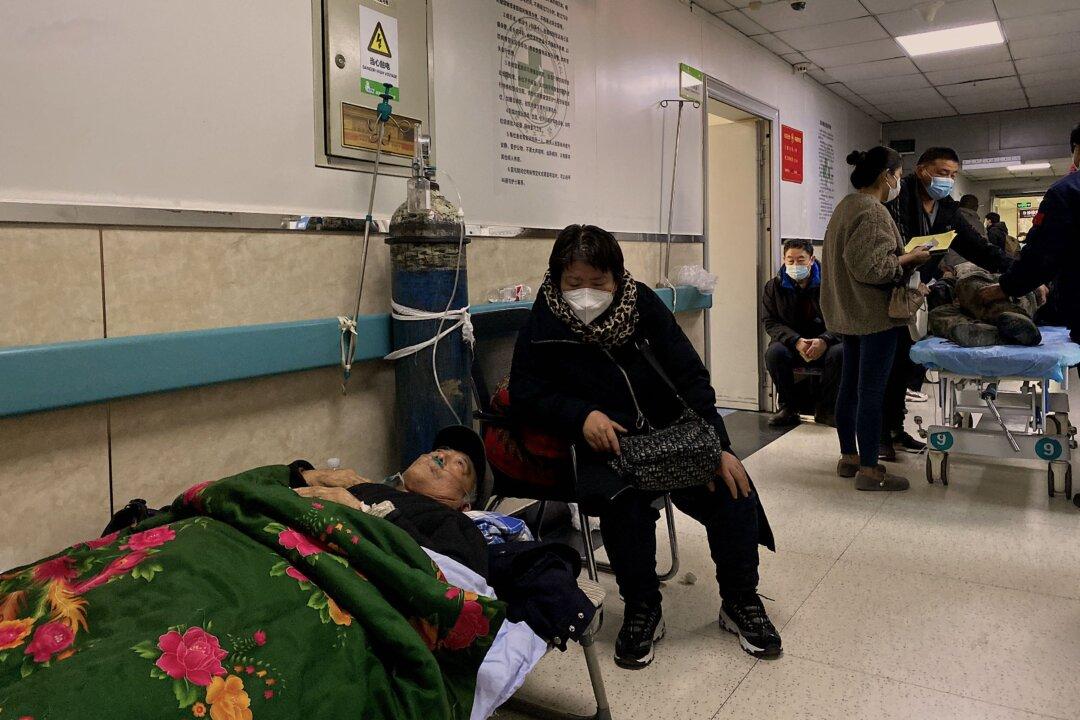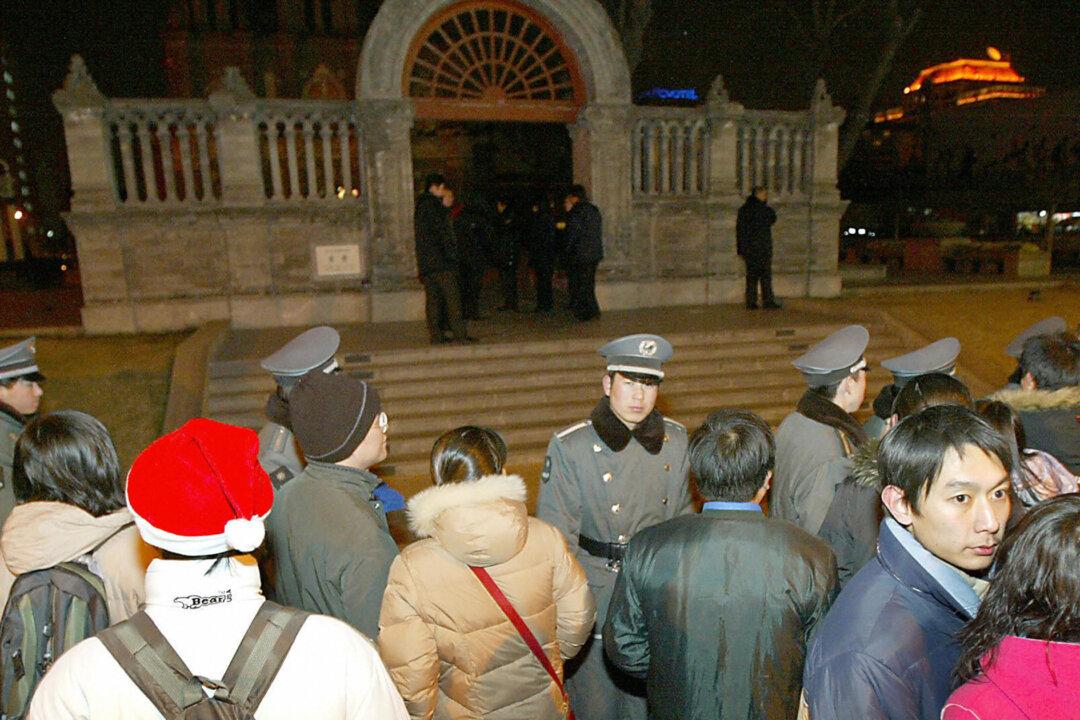In March, information about 25 deaths and 116 wrongful convictions of Falun Gong adherents managed to penetrate China’s internet firewall to reach U.S.-based organization Minghui.
Falun Gong incorporates meditation exercises with a body of teachings based on the principles of truthfulness, compassion, and tolerance. After estimates were made in the ‘90s that there were 70–100 million followers, fearful of Falun Gong’s popularity, the Chinese Communist Party (CCP) launched a brutal campaign against the movement in July 1999.
Information about the persecution is a heavily guarded state secret in China. The campaign targeting millions of Chinese remains largely hidden from view. However, leaked information reported by organizations like Minghui and the U.S.-based Falun Dafa Information Center records a systematic campaign of abductions, torture, and death.
To date, Minghui has documented the deaths of about 5,000 Falun Gong practitioners. The real death toll is believed to be in the hundreds of thousands.
Watchdog groups have been reporting on the struggle to obtain justice and proper medical care for Liao Guanghui for years. Her story starts at the food warehouse where she worked. Toxic substances at the warehouse caused serious health problems for the Sichuan woman, who was born in 1953. In 1999, Liao started to practice Falun Gong, and believed her recovery was due to the practice. Seeing her transformation, her husband also became a Falun Gong follower.
In July of 2019, Liao, who was 66 years old, was arrested. She was detained at a local police station for over a year before being sentenced to 3 years in prison and a 3,000 RMB ($435) fine for refusing to renounce Falun Gong.

On Jan. 21, 2021, guards at Chengdu Women’s Prison contacted Liao’s family saying that she needed brain surgery after a fall in the prison restroom. The bill of over 100,000 RMB ($14,500) would be the family’s responsibility. Although the fall was said to be accidental, a physical exam revealed damage to Liao’s trachea and lungs that indicated torture.
After the brain surgery—a craniotomy that left her with a large sunken area on one side of her head—the prison refused to release the comatose woman for medical treatment, instead keeping her incarcerated in the prison hospital for the remainder of her sentence. After her 3-year prison term was over, Liao was sent home in a vegetative state. She died at home on March 23, 2023.
In early 2013, the governor of China’s northeastern province of Heilongjiang was infuriated by the sight of pro-Falun Gong banners hanging from a highway bridge. Typical of such banners, they read simply “Falun Dafa is Good.”
In retaliation, 61 Falun Gong practitioners in the town where the banners appeared were arrested. Fei Shuqin was among those taken into custody. The 67-year-old grandmother, a retired food industry worker, had raised four children on her own after the tragic death of her husband. She credited the practice of Falun Gong with her recovery from a multitude of health problems.
While Fei was in detention, she was tortured despite her old age. She was sentenced to 13 years in prison.
During this time, Fei’s family visited her in prison and noticed that Fei showed signs of Alzheimer’s disease. They suspected that the prison had been injecting nerve-damaging drugs in her and asked to take her to the hospital. But the prison again refused.
Twenty Years of Harassment, Arrest, and Torture
Falun Gong practitioners Zhang Jiuhai and his parents were highly respected members of their community in the Pinggu Township of Beijing before the persecution started.After the persecution began in 1999, Zhang’s parents were sent to forced labor camps, where they were subjected to torture and forced labor. Zhang’s mother died in November 2014. Three years later, Zhang’s father died alone at home while Zhang was incarcerated.
Twice, Zhang Jiuhai was sentenced to four years in prison. When he was released, he had to be constantly on the move to avoid being arrested again. When in prison, according to minghui.org, Zhang was brutally and frequently beaten and deprived of sleep for a long period of time. He was tortured by electric shock and force-fed an unknown substance.
Zhang died in early 2023 at the age of 56. In less than ten years, his entire family perished.
On March 17, Duan Guixiu, a Falun Gong practitioner from Shandong province, was sentenced to 3 years in prison and a fine of 20,000 RMB ($2,900). Her crime: she sent a letter to the new police chief in her city. The letter, titled “wishing you safe,” included basic information about the spiritual practice and urged him to stop the persecution of Falun Gong.
A family of four in Heilongjiang province was arrested at their home on July 11, 2022. Guo Chunling, her husband, daughter, and mother-in-law were among the dozen Falun Gong practitioners arrested on that day. The local police said they had been monitoring them for months as they printed materials about Falun Gong at home on their home computer and printers.
The family home was ransacked. The police took away books, computers, printers, and even confiscated the family van. The confiscated items became the “evidence” and Guo was given an eight-year prison term.
Cong Lanying, 78, was taken from her home on Feb. 1, 2023, by police in Weihai, Shandong province. Two weeks later, Cong was sentenced to 4 years in prison for “using cults to undermine the implementation of the law.” The accusation is commonly used to convict Falun Gong adherents.

A ‘Cold Genocide’
Human rights scholar Maria Cheung may have been the first to call the CCP’s campaign to eradicate Falun Gong a “cold genocide.” Her paper entitled “Cold Genocide: Falun Gong in China,” was published in the international journal “Genocide Studies and Prevention” in 2018. Co-authored by Torsten Trey, David Matas, and Richard An, it remains one of the most heavily cited works on the subject.The authors characterized the persecution of Falun Gong as a cold genocide, “which is hidden and lingers for over two decades without much notice.” A hot genocide, by contrast, contains “destructive acts of high intensity which annihilate the victim group in a short time span.”
The extermination campaign is so insidious that the public only knows about its scale because of small batches of information that have escaped the CCP’s firewall over the past two decades.
Trey, executive director of U.S.-based Doctors Against Forced Organ Harvesting, told The Epoch Times on April 7: “If you mention the number of students shot during the high-intensity Tiananmen Square massacre on June 4, 1989, the world is in shock. But if you compare this one-time number with the number of deaths inflicted upon Falun Gong practitioners each day, then the outcry is missing.”
Trey noted that because of the slow and continuous nature of the persecution, it elicits less outrage than the Tiananmen Square tragedy, “despite the fact that the slow-moving, but steady genocide against Falun Gong practitioners over 23 years caused by-far more deaths than the massacre on June 4.”
“One must not only look at one day,” Trey cautioned. That short-sighted approach may cause observers to interpret as “insignificant” an event that is actually a slow-moving destruction with “genocidal consequences over decades.”




